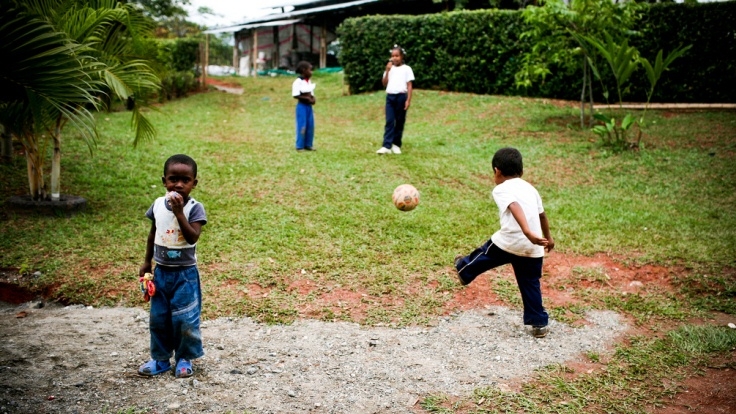Results
The Program contributed to consolidating fragmented efforts to provide young children, particularly the poorest, with access to high quality comprehensive ECD services in Colombia, by supporting the development and initial implementation of the country's first multi-sector ECD strategy. Some achievements to date include:
- A Multi-sectoral Commission (CIPI) was established to coordinate across agencies and set ECD policies and standards
- National multi-sectoral ECD Strategy (De Cero a Siempre) was developed, finalized and approved. The strategy was piloted in 6 municipalities (began in July 2012), and reached 750,000 children under 5 years old in its first phase.
- Colombia will build on the pilot experience to roll-out the strategy nationally.
- An Operations Manual for local level implementation of the Strategy was completed and delivered (October 2012)— providing guidance, frameworks and analytical tools for 24 local authorities to ensure the provision of comprehensive ECD services.
- A municipal-level tracking tool, which can be used to locate ECD service centers and – potentially –service gaps, was designed (March 2012).
- A framework for the design of the Monitoring and Evaluation (M&E) system for the Strategy was finalized (September 2012), strengthening the Government’s ability to track information on children and service provision.
- Quality Standards for ECD Centers and family based programs were developed, which will serve to guarantee the high quality of services provided to an estimated 1,170,000 children.
Bank Contribution
The program was supported by the Bank’s multi-year Programmatic Knowledge Services “Improving the Performance of Social Services in Colombia”, whose main objective is to enhance public sector capacity to use information for improved policy making through development of new coordination and accountability frameworks and tools in Health, Education, and ECD, and is financed from FY11-FY14 through the following sources:
- US$ 70,000: Strengthening Governance of Early Childhood Development Programs (SFLAC grant)
- US$ 190,000: BB TA-P127472-TAS-BB PKS Improving Performance of Social Service
Partners
Local project partners include the Alto Consejero for the Presidencia (primary partner and implementing agency), the ministries of Health and Social Protection, Education, the Intersectoral Commission for De Cero a Siempre, and the Colombian Institute of Family Wellbeing (ICBF). To coordinate the assistance provided, the team communicated regularly with the Presidencia, who met monthly with the local partners and agencies, and led the consultative process for the development of the national ECD strategy. The Bank team also fostered Spanish engagement by meeting with the ECD strategy coordinator (Constanza Alarcon) and officials from the Spanish Economic and Commercial Office in the Spanish Embassy in Bogota in March 2012, in order to update them on the Program results, which were made possible by SFLAC funding.
Moving Forward
The Program’s strengthening of Government capacity - by developing the tools needed to help them prioritize multi-sector ECD approaches, determine their potential impact, inform decision-making for ongoing strategic investment in Colombia’s ECD sector, and promote accountability in service delivery – ensures a sustainable impact and will directly contribute to the Government’s current as well as future ECD efforts. Further support to implementing the ECD strategy nationwide will be provided through the Bank initiated ECD Community of Practice.
The Colombian experience further resulted in knowledge transfer among other countries, and is informing ECD strategies in Bolivia and Nicaragua. Products including the Operational Manual will also be distributed through the Bank’s HD knowledge exchange site and the ECD Community of Practice, to benefit practitioners and policymakers in other countries.
Beneficiaries
The local authorities working for the most deprived children in Colombia received high quality technical support to improve the services provided to mothers and children under five, and therefore strengthened their governance of Early Childhood Development Programs. The Social Promoter from the local government of Norte de Santander, Laura Cáceres, stated that “thanks to the implementation of the Strategy, De Cero a Siempre, the region formed a breastfeeding committee, and was able to launch a campaign to promote nursing, conduct workshops for caregivers, and improve the health units in a number of home-based community day care centers”.
The Program also benefited practitioners and policy makers in Bolivia and Nicaragua: “It enabled us to share knowledge and life experiences with ECD practitioners in Colombia that deal with the same issues we do. It was also an amazing opportunity to learn the different service provision modalities for ECD and see first-hand the work that the teachers do with young children on the day to day. We will take these experiences and incorporate them to our current work”.

